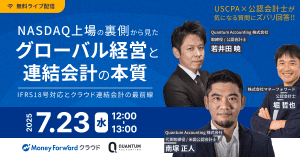Introduction
In the U.S. securities market, particularly among startup companies listing on Nasdaq, classified voting shares are widely adopted to allow founders to maintain control of the company. A well-known example is Alphabet Inc., the parent company of Google. Alphabet Inc. has issued the following three classes of stock:
- Class A Shares: Available to general investors, carrying one vote per share.
- Class B Shares: Held by founders and insiders, carrying 10 votes per share. This allows them to exert strong influence over the company’s management with less capital.
- Class C Shares: Non-voting shares, primarily used for new issuances or as stock options.
This structure enables founders to maintain control over the company, making it easier to execute a long-term vision. However, this structure also faces criticism that control is excessively concentrated in the hands of the founders, undermining fairness among shareholders.
What is Tenure Voting?
Tenure Voting was proposed as a way to address such criticisms of multiple-class voting shares. Tenure Voting is a system in which a shareholder’s voting rights increase the longer they hold the shares. This mechanism aims to protect companies from short-term market pressures while giving a greater voice to shareholders who are committed to the company’s long-term growth.
Historical Background and Adoption Examples
Tenure Voting was first introduced in the 1950s by The J.M. Smucker Company, an American food manufacturer. They granted additional voting rights to shareholders who held stock for four years, aiming for the company’s long-term success. In the 1980s, other companies began adopting this system to counter the risk of hostile takeovers. Aflac adopted Tenure Voting in 1984, implementing a system that increased the voting rights per share tenfold for shareholders who held shares for more than four years.
Benefits of Tenure Voting
The primary benefits of Tenure Voting include the following three points:
- Favoring Long-Term Shareholders: By granting more voting rights to shareholders who hold shares for an extended period, those who contribute to the company’s long-term growth can have a stronger influence on management.
- Increased Corporate Stability: Tenure Voting protects the company from short-term stock price volatility and hostile takeovers, enabling management based on a long-term vision.
- Enhanced Shareholder Loyalty: By providing shareholders with an incentive to hold shares long-term, the relationship of trust between the company and its shareholders is strengthened.
Challenges of Tenure Voting
Conversely, the main challenges of Tenure Voting include the following two points:
- Difficulty Identifying Beneficial Owners: When shares are held in “street name” (i.e., in the name of a broker or securities firm), it becomes difficult to identify the actual beneficial owners and accurately track their holding periods. This complicates the administration of the system.
- Administrative Complexity: Tracking shareholder holding periods and appropriately allocating voting rights requires detailed record-keeping, which poses an additional burden on the company.
Recent Movements Concerning Tenure Voting
Tenure Voting is garnering attention as a compromise between multiple-class voting structures and the “one-share, one-vote” principle. The LTSE (Long-Term Stock Exchange), established in 2019, is a new stock exchange designed to support the long-term growth of companies. Its founder, Eric Ries, advocated for companies listing on the LTSE to adopt Tenure Voting. Although the final SEC approval made the adoption of this system optional rather than mandatory, it remains a focal point of interest to see how Tenure Voting will evolve and what impact it will have on corporate governance.
In Japan, an increasing number of companies are introducing preferential treatment for long-term shareholders. The concept of Tenure Voting may serve as a useful reference in considering how to enhance long-term shareholder value.
Our firm provides support for U.S. listings, including Nasdaq, for Japanese companies. If this article has piqued your interest and you wish to learn more, please do not hesitate to contact us. We look forward to the opportunity to speak with you—those who are driving forward today with an eye toward the future—and to offer our support where we can be of assistance. For inquiries, please feel free to reach out to us using the contact form below.









